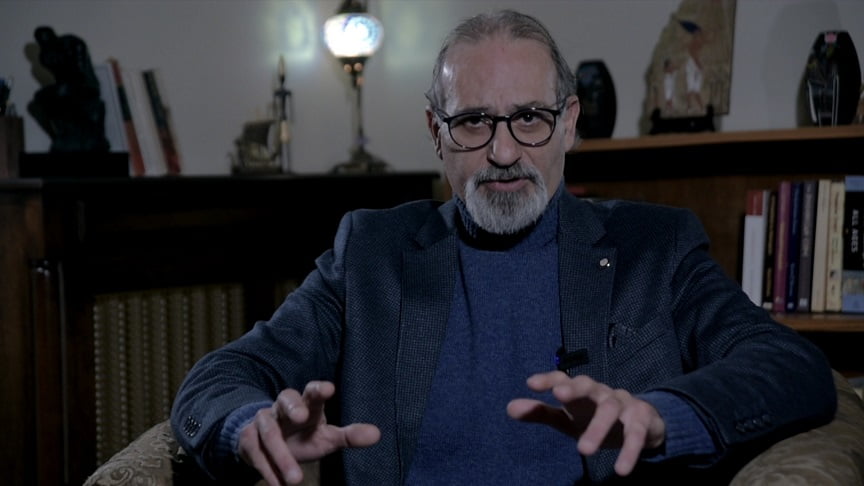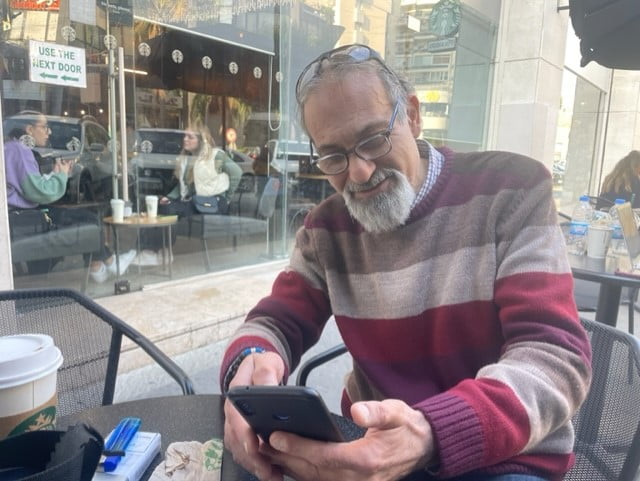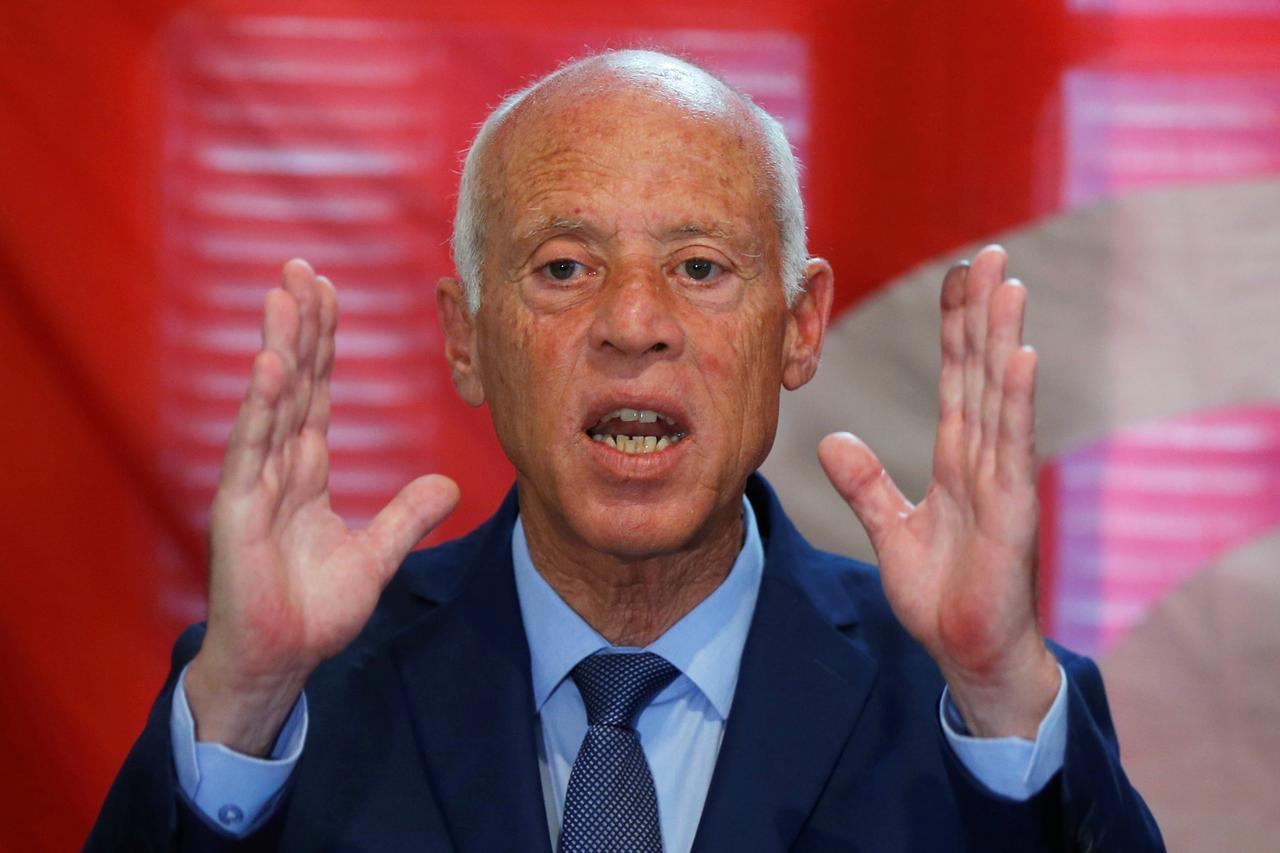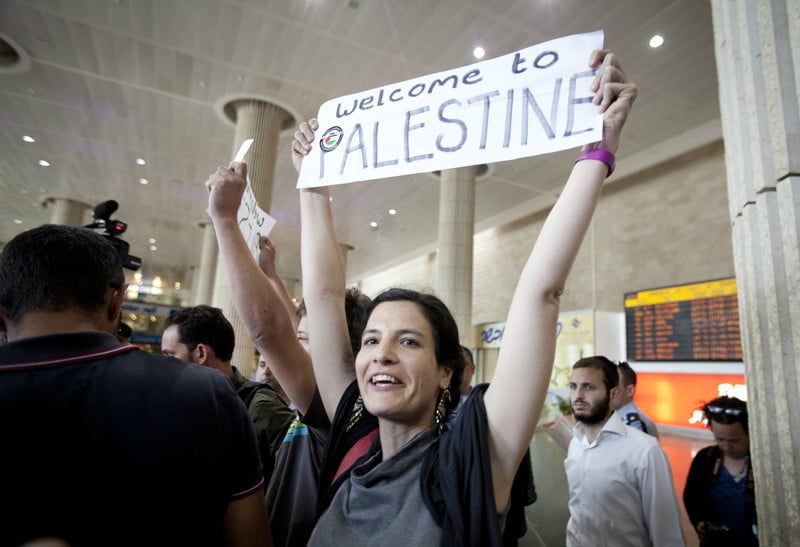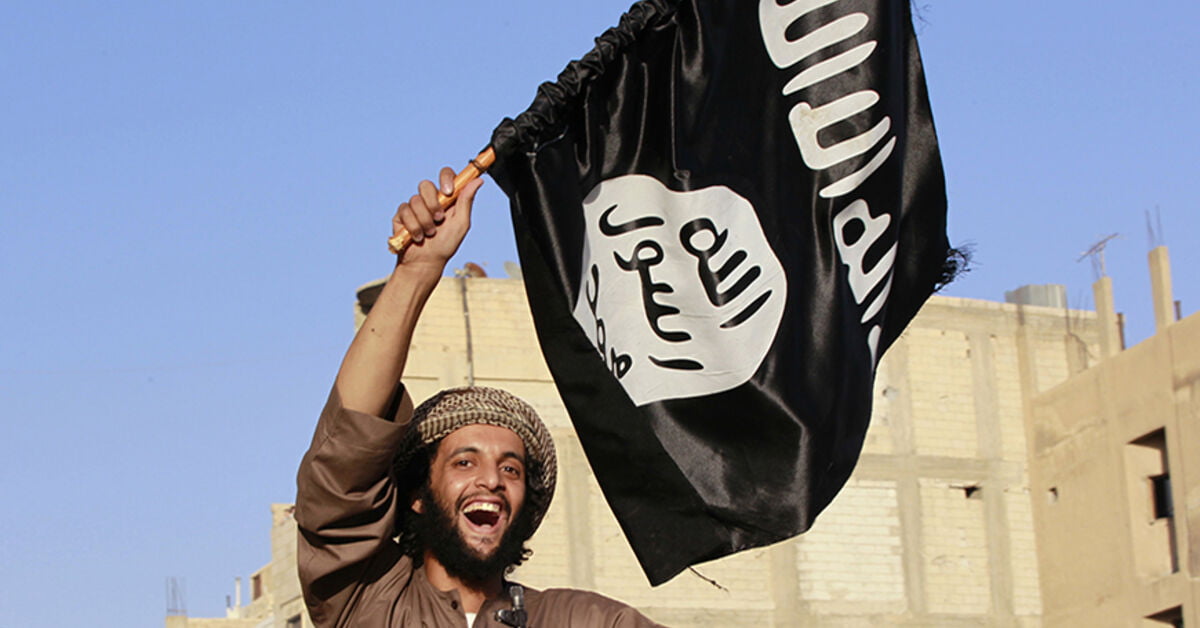
Detained media magnate Nabil Karoui and academic Kaïs Saïed made it through to the second round of Tunisia's presidential election, the countries independent Electoral Commission announced earlier this week.
THE LEVANT NEWS EXCLUSIVE - By Arthur Blok* |
Just 45 percent of the roughly seven million strong electorate turned up to cast their ballot in the first round of the nation’s second free presidential election Sunday. While in 2014 almost 70 percent of the voters participated in the first round. Sunday’s relatively low turnout must be seen in contrast with 2014 when roughly two million people less registered to vote.
The first-round results are a clear sign that Tunisian voters are fed-up with the political establishment that failed to deliver the promised benefits of the 2011 uprising: that transformed the country into a parliamentary democracy. Currently most of the executive power lays with the parliament and government. The powers of the president are limited to foreign policy, defense and national security. Before the 2011 revolution the president was almighty and basically ruled alone.
Saïed won almost 18,4 percent of the votes, Karoui came in second with 15.9 percent. Abdelfattah Mourou of the Islamist Ennahda party became third with 13.2 per cent of the votes cast. An unexpected outcome for the candidate of the second party in parliament. Since none of the candidates achieved an absolute majority - over 50% of the votes - the election will go to a run-off second round scheduled for November in which only the first two candidates participate.
Most people would have expected Mourou to perform better says Ikbal Loumi CEO and founder of Elka Consulting one of Tunisia’s leading polling agencies. “It was the first time Ennahda participated with its own candidate. In 2014 they chose to support one of the participants. Their electorate is very divided: roughly 40 percent is with Mourou, roughly 20 percent of them voted for Saïed. Some of them even chose Karoui who was in fact the biggest opponent of Mourou. Their division made the difference this election.”
Kaïs Saïed

Sundays winner Saïed (1958) is a ‘constitutional law scholar’ at a state university in the Tunisian capital. He is seen as a technocrat and an expert on constitutional affairs with no political experience whatsoever. Saïed was largely unknown before the elections.
Saïed ran a very successful low-key campaign as an independent: going door-to-door to drum up support for his conservative platform. He has been carefully avoiding alliances with any of the nation’s political parties or movements.
The 61-year-old scholar has no party structure to support him. His campaign relied on a small group of volunteers, and held no public meetings. In the weeks and months before the election he travelled to some 100 plus cities across the country, visiting cafés and markets to spread his message.
His attacks against the elite did well amongst the Tunisian working class and students. Despite the fact that Saïed lacks any charisma and looks stiff and expressionless. He is in favor of the death penalty, punishment for homosexuality and is against equal inheritance rights between men and women. Saïed was not reachable for any comments.
Nabil Karaoui

Born in the northern Tunisian town of Bizerte Karoui (1963) is seen by his followers as ‘a man who likes to reach the impossible’. When the country’s former leader - president Zine al-Abidine Ben Ali - changed the law and made it possible for private tv stations to be launched, Karoui saw his change and started Nessma Tv in 2007.
Karoui’s tv channel played a vital role in the country’s 2011 revolution that was the trigger for the Arab Spring: a wave of popular uprisings in the region that changed the status quo in many Arab countries. A revolution that was mainly driven by the poor economic performance of the regime of Ben Ali.
The station provided dissenting voices in the country a platform despite state censorship including the late Beji Caid Essebsi's Essebsi. The Tunisian president that died on July 25 at the age of 92, shortly before the end of his term. Karoui initially joined Nidaa Tounes but - like many others - split of in 2017. Shortly after he announced in June 2017 his own Qalb Tounes party.
Karoui arrest
The arrest of Karoui a few days before the official launch of the campaign is a shadow over this presidential election. The delicate timing raises many questions on both the national and international level. Karoui was arrested with a disproportional show of force late August on a case from 2016 where he was being charged with money laundering and tax evasion. Brought forward that same year by an NGO named I Watch.
According to Karoui’s party it was a politically motivated attempt to silence one of the leading candidates from the election race. Samy Achour, member of the political commission of Karoui’s Qalb Tounes party, sees the arrest as a failed attempt to mislead the public, and to give people the impression they are not able to vote for him.
“Despite all the pressure by Ennahda and the party of prime minister Youssef Chahed, the electorate showed strength by electing him as the second candidate Sunday”, says Achour who initially hoped Karoui would be the number one candidate. “If he would not have been detained and could have campaigned like any other candidate he would have won with much larger figures.”
Many questions remain unanswered about his arrest. It also remains unclear if Karoui will be released in the coming days in order to continue his campaign as a free man. Anonymous sources in the Tunisian judiciary state that many are unhappy with arrest and the procedures followed.
Achour foresees an unfair battle ahead in which Saïed will have a disproportional advantage. “Releasing him will be a political decision, just like his arrest was. In the past years all the charges against him have been investigated thoroughly, and he cooperated fully. We are living in a country where a simple accusation can get you arrested within 24 hours. Even if you are not guilty. Why not arrest him years ago?”
Economy
The challenges for the new president and Tunisia’s new government are immense: the economy is now in an even worse state than it was in 2011, resulting in regular protests in the past years. Inflation of the local currency resulted in a doubling of the price of many goods for daily life. While unemployment rates are at all-time high and the country is suffering from a brain drain.
The economic malaise is mainly blamed on the current government lead by prime minister Youssef Chahed who headed the government since the summer of 2016 says Elka CEO Loumi. “People are angry with the poor economic performance of this government where besides the party of Chahed Ennahda played a vital role.”
Achour explains that if Karoui is elected one of the first things Karoui will do is executing an emergency plan to fight poverty in order to give poor Tunisians - who often live of less than 2 dollar - hope of a better future. The ambition is to execute this plan within a relative short timeframe.
“We need to help the country’s poorest. We’ll start with simple things like repairing broken water wells, improving neglected infrastructure and similar matters. At the same time, we will start with a program to liberate the economy to unleash its true potential. The core of this strategy is to apply the knowledge economy to strategic sectors such as water management, the industry and the government. All of which we plan to modernize through major upgrade projects”, says Achour.
He continues that Karoui foresees a talent nation in which foreign investors would be eager to invest: “By stimulating the economy through injecting money in smart projects it will be more sustainable and dynamic. It will create knowhow that we can export for example to the nations surrounding us. By doing that we will create at the same time many new jobs. That is exactly what this country needs.”
Loumi expects that the party of Karoui will get good results at the parliamentary elections as well. He even expects the collapsed Nidaa Tounes party to do, relatively, well. “Due to the passing of president Essebsi this summer, there is a new wave of sympathy for the party. People see Nidaa Tounes as his political heritage.”
Parliamentary elections are scheduled to take place in Tunisia on 6 October 2019. The second round for the presidential election is on the role for November.
